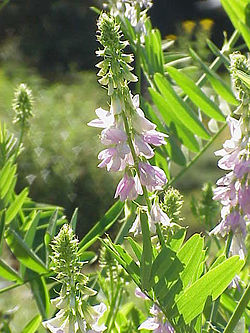 |
| Deathstalker Scorpion |
The deathstalker scorpion's venom is a neurotoxin powerful enough to kill a child or elderly person, often by causing pulmonary edema.
Recently, Miqin Zhang, a materials scientist at the University of Washington, showed that a certain compound called chlorotoxin found in the venom could help in the treatment of brain cancer. In gene therapy, doctors inject small bits of healthy DNA that are attached to nanoparticles, and these move toward the tumor site to repair or replace the cancer-causing gene mutations.
The problem is that many of the substances currently used for delivery either don't deliver the genes efficiently or have potentially harmful side effects. But by attaching chlorotoxin to the nanoparticle, Zhang managed to get significantly more of the therapeutic DNA sequence into the cancerous cells.
Bee Venom in Cancer Treatment
In a similar study, Samuel A. Wickline, a biomedical engineer at Washington University School of Medicine, altered a protein found in bee venom—which often causes inflammation after stings—called melittin. Like chlorotoxin, melittin can help deliver therapeutic drug compounds to damaged cells. Wickline linked the compound to the membrane of nanoparticles, which, without disrupting a drug's normal function, helped it more accurately hit its target. Scientists are primarily focused on using this as an anticancer therapy.
Tarantula Venom for Muscular Dystrophy
Frederick Sachs, a biophysicist at the University of Buffalo, has studied the Chilean rose tarantula, a relatively harmless spider commonly bought in pet stores. Studying the venom, too weak to harm a human, he came across a peptide called GsMtx-4.
Sachs believes it can reduce the amount of stress in muscles. Excessive mechanical stress on muscles is common in muscular dystrophy. By injecting a synthetic version of the peptide into lab mice with dystrophy, Sachs found that muscle activity improves.
 |
| Indian Cobra |
India's traditional medicine system, ayurveda, has used cobra venoms for thousands of years. Earlier this year, physiologist Antony Gomes at the University of Calcutta published a paper showing the role the venom might play in improving arthritis. Male rats were induced with arthritis and then injected with nonlethal doses of Indian monocellate cobra venom. The rats showed significant improvement in their arthritic symptoms.

